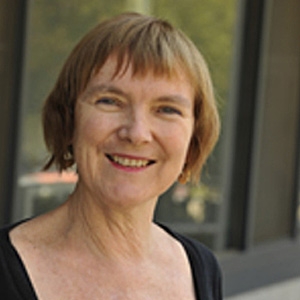Vale Gough Whitlam - a visionary Australian
Research news
The death of former Prime Minister Gough Whitlam has sparked a wave of accolades across the country.
"The Conversation" has published a tribute that spans Mr Whitlam's contributions across education, social policy and health, to land rights, the environment, foreign policy and the arts.
The following summary focusses on Mr Whitlam's economic legacy and was written for "The Conversation" by Deakin's Dr Margaret McKenzie, Economics Lecturer from the School of of Accounting , Economics and Finance.
"The Whitlam government was more broadly globalist in its economic approach than previous governments, which had served to protect the traditional interests of largely British company subsidiaries, and of agriculture. It had a big task, being faced by the oil crisis of the mid-1970s. The oil price increased around fourfold in nominal terms between 1972 and 1977 (around threefold adjusted for inflation), at a time that inflation doubled from 10% to 20%.
Whitlam’s role in the development of the modern Australian economy is fundamental. Policy direction was shifted towards freeing up both trade and international capital movements. The Whitlam government moved away from the more Eurocentric perspectives of previous governments and recognised that Australia was a part of the Asia-Pacific region. It opened up cultural and educational links with China and Indonesia that were the precursor to economic ties.
In 1975, the Whitlam government established the Foreign Investment Advisory Committee, the predecessor to the Foreign Investment Review Board. The purpose was to monitor the level of foreign investment in Australia and regulate the takeover of Australian companies to defend Australia’s interests. This was modified and replaced by Fraser with the Foreign Investment Review Board, which was still more positive toward foreign investment flows.
The Whitlam government was in fact far less protectionist than previous governments. This was driven by Whitlam himself in opposition to the union movement. The commissioned Rattigan report recommended tariff cuts. In 1973, a burst of inflation was followed by the well-known action in this area of a tariff cut across the board of 25%.
Given that the average level of industry assistance was more than 30 per cent in 1970, this is significant, amounting to an overall reduction in import prices of something like 10%.
In 1974, the Whitlam government commissioned the Crawford report and with its recommendation replaced the Tariff Board with the Industrial Assistance Commission (IAC). Its purpose became more market-focused. It was intended to improve the efficiency of the Australian economy.
Economists’ modelling of the effects of tariffs on prices and quantities of traded goods across industries began to be built into policy. The IAC was the predecessor to the Industry Commission, which has since evolved into the Productivity Commission. The modern role of economics in Australian policy was put in place by the Whitlam government.
The Trade Practices Act of 1974 was intended to promote competition in the economy and improve consumer protections. This was to be administered by a new body, the Trade Practices Commission. Together with the Prices Surveillance Authority it later became the Australian Competition and Consumer Commission."
- This tribute was published in "The Conversation."
Share this story
 Paying tribute to Gough Whitlam - Dr Margaret McKenzie.
Paying tribute to Gough Whitlam - Dr Margaret McKenzie.
